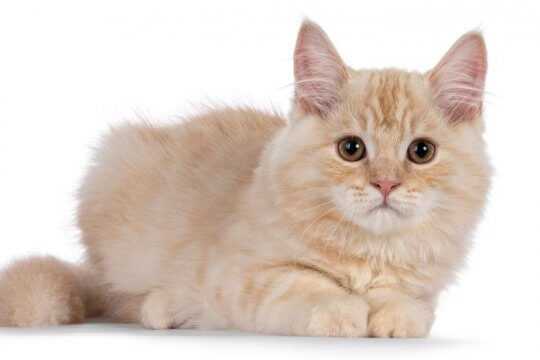Cymric

Origin
Isle of Man
Height
11"-14"
Adult Weight
8-12 pounds
Life Span
10-15 years
TEMPERAMENT
Calm, friendly, intelligent, family-oriented
OTHER NAMES
Longhair Manx, Semi-longhaired Manx
Group
Medium-sized short-haired and long-haired
Price
$300-$800
Personality and Temperament
Care
- NUTRITION
- GROOMING
- EXERCISE
- HEALTH
Characteristics
History
The Breed Standard
Body
The body should be rounded, with a broad chest and a short back that displays an arch that rises from the shoulders to the rounded rump. These cats should seem heavy for their size.
Head
The Cymric cat displays a well rounded head with prominent cheeks and jowls, well-developed muscles, a strong chin, and prominent whisker pads. Males should have more pronounced jowls than females.
Eyes
A Cymric cat should have large, rounded eyes that are positioned at a slight angle, with the inner corners slightly lower than the outer corners. The color of a Cymric cat's eyes should complement its coat.
Ears
The ears should be wide at the base with a gradual taper that leads to a rounded tip. They should be widely spaced, and should be positioned slightly to the outside of the head. Ear furnishings and tufts are highly desirable in Cymric cats.
Legs & Paws
The legs should be strong and sturdy with short front legs that emphasize the chest and hind legs that are much longer, with rounded, muscular size. The paws should be rounded.
Tail
Show-quality Cymric cats should be completely tailless or should have the appearance that no tail exists. If extra vertebrae exist at the end of the spine, they are permitted so long as they do not have a noticeable tail joint or detract from the rounded appearance of the cat's rump.
Coat
The coat should be long and silky with a noticeable neck ruff and breeches, as well as longer abdominal hair. The ruff should be prominent.
Color
Cymric cats may display a wide variety of colors and patterns. A few are excluded from show including lavender, ticked tabby, chocolate, pointed, or any prohibited color or pattern mixed with white markings. Nose leather and paw pad colors should complement the coat.
Frequently Asked Questions
-
How much does a Cymric cat cost?
How much does a Cymric cat cost?Cymric cats cost between $300-$800. -
How big do Cymric cats get?
How big do Cymric cats get?Cymric cats tend to be medium in size. A fully grown Cymric cat might weigh between 8-12 pounds or more and range in height anywhere from about 11"-14" inches tall. -
How long do Cymric cats live?
How long do Cymric cats live?The Average lifespan for Cymric is 10-15 years. -
Do Cymric cats shed?
Do Cymric cats shed?Cymric are long-haired cats, so you do have to expect a certain amount of shedding from this breed, but they don't shed as much as other cat breeds.